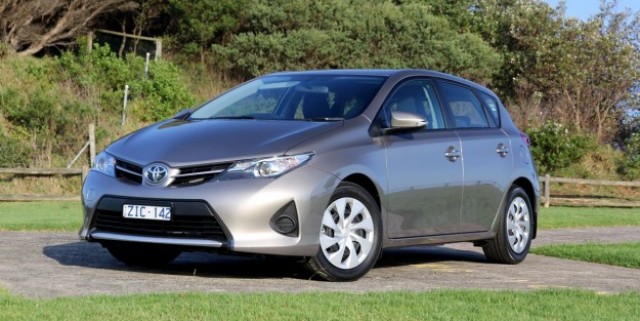
Despite an extraordinary 47-year run for the Toyota Corolla, you’d be hard pressed to find anybody who would laud the ubiquitous small car as ever being a standout looker in its segment.
Well, all that has finally changed in a big way.
It seems Toyota’s designers have waged something of a style revolution on the evergreen hatch, in contrast to the mere evolution of conservatism we’ve come to expect over the 10-generation run of the Toyota Corolla.
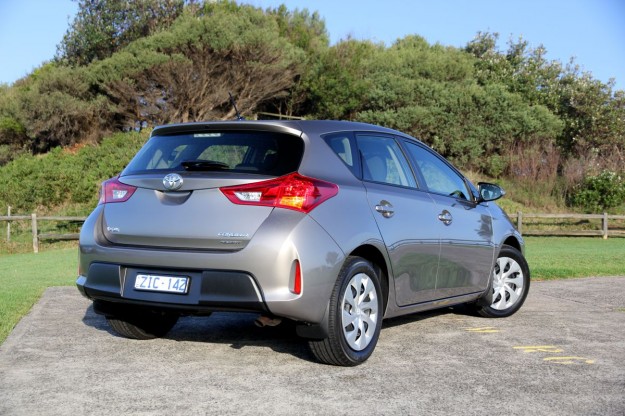
Few would argue the newest-generation Corolla hatch breaks exciting new ground with its styling.
The design is fresh and utterly contemporary, with strong feature lines and loads of newfound character.
The rear end is especially attractive, with clean lines and a particularly smart-looking rear light assembly.
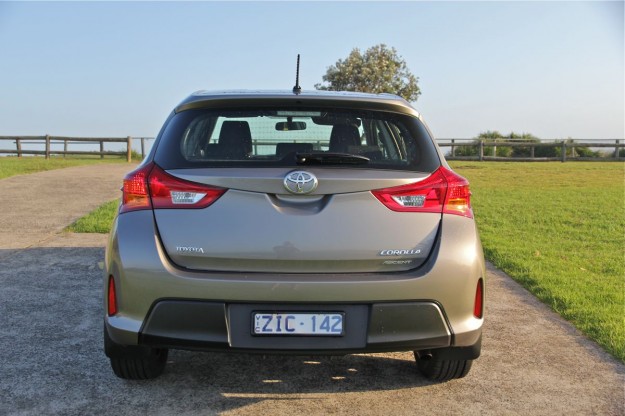
Overall, we think it’s one of the most attractive small cars out there this side of 20 grand ($19,990 for the base Corolla we’re testing).
Inside, the Corolla’s style revolution continues unabated with the heavily bolstered front sports seats offering the first evidence of a great leap forward. They’re good ones, too, with the lateral support running all the way up the seat for rock-solid support in the twisty bits.
It’s a bold departure for a model that has clearly represented a winning formula for so many decades.
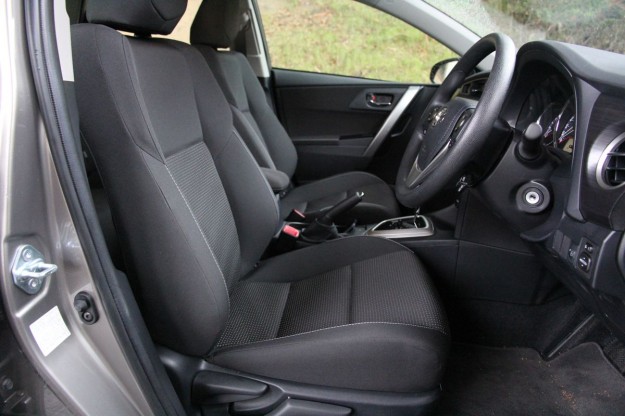
The total number of Corolla sales so far is mind-boggling.
Globally, Corolla has exceeded 39 million units (the 40 millionth to be sold this year). Over 1.1 million have been sold in Australia alone.
But the 11th-generation Toyota Corolla isn’t resting on the laurels of past sales figures. The merely ‘safe and reliable’ Corolla has been given its papers.
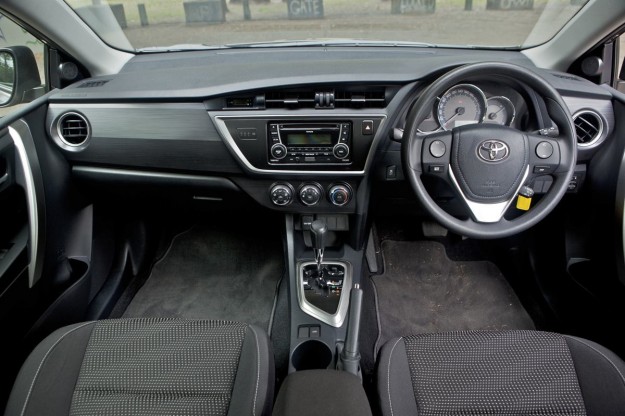
There’s a proper sporty feel to this car and it starts with a seating position that’s lower than in the previous Corolla.
It’s not exactly Toyota 86-like, but you definitely feel more at one with the car.
The newly adopted low-profile, soft-touch dash blends well with the mix of contrasting metallic and carbonfibre-look materials used throughout the fascia and centre stack.
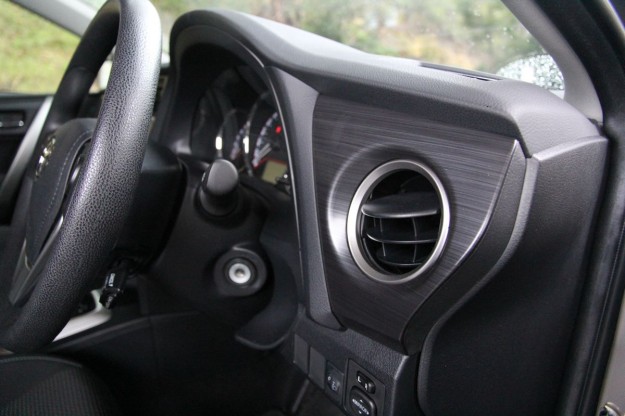
Even the main instrument cluster gets a sporty edge to it, with a large centre-mounted speedo and blue indicator needles on a black patterned background, offset by a slick red pinstripe.
Despite our $19,990 entry-level Toyota Corolla Ascent boasting a lowly polyurethane steering wheel, it is still pleasingly thick-rimmed, nicely contoured and has a good feel to it.
The base model Ascent gets a small mono screen, but unfortunately, misses out on the decent-size 6.1-inch touch screen display, which takes centre stage in the Ascent Sport, while the higher-spec Corolla models also gain a reversing camera, split-screen feature and satellite navigation with SUNA live traffic updates.
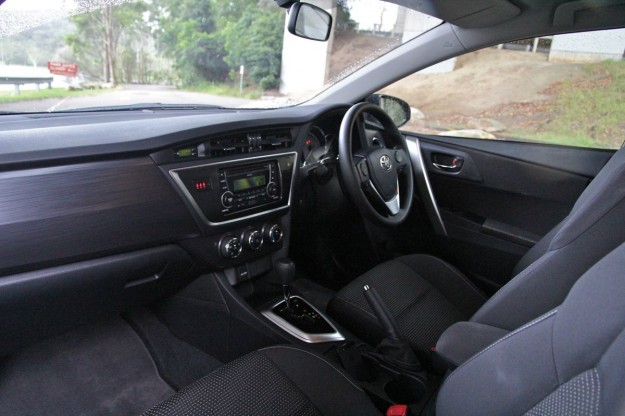
All variants come with a six-speaker audio unit with Bluetooth phone and music streaming (dead easy to pair) as standard fitment.
There’s more rear legroom than ever before – comfortable even for those standing six-foot-plus – and a 75mm-wider boot aperture makes loading easier.
Boot space, however, betrays the Corolla’s relatively poor packaging. At 280 litres, it’s no bigger than that of a Volkswagen Polo city car and 70 litres shy of the Golf’s capacity that is still well short of the small-car benchmark.
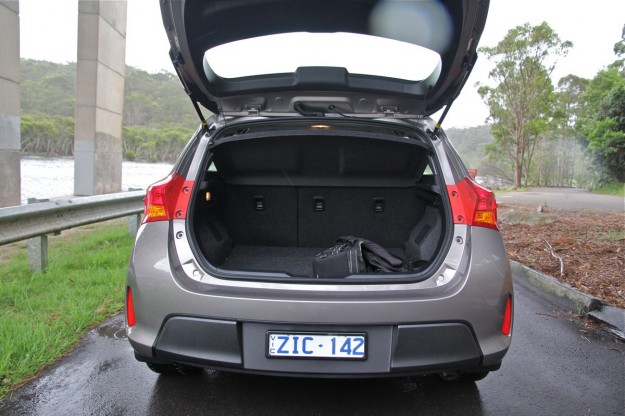
The rear seats at least fold completely flat to expand volume to a total of 1220 litres.
Power comes from the same, carry-over 1.8-litre four-cylinder engine from the previous model Corolla – though Toyota has tweaked it for slightly more power, giving it 103kW (up 3kW). Peak torque of 173Nm also arrives lower down in the rev range.
It doesn’t sound like a lot, but matched to the optional seven-speed CVT (replacing the old four-speed auto), the new Corolla is a surprise package.
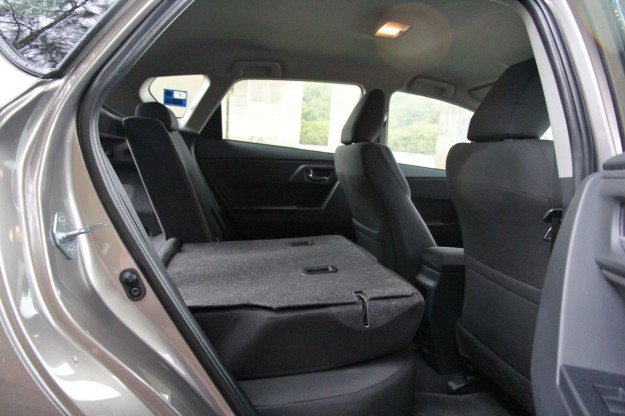
Rarely does it feel under-done, rather there’s sufficient ‘go’ from almost anywhere on the rev range for the Corolla to feel fairly zippy.
Mid-range punch is especially good – this is where the CVT is at its best – offering decent in-gear acceleration with the least amount of audible commotion.
Tap the Sport button and the Corolla rewards with manual-style shift steps for the seven gears, or you can use the shift-lever for more fun.
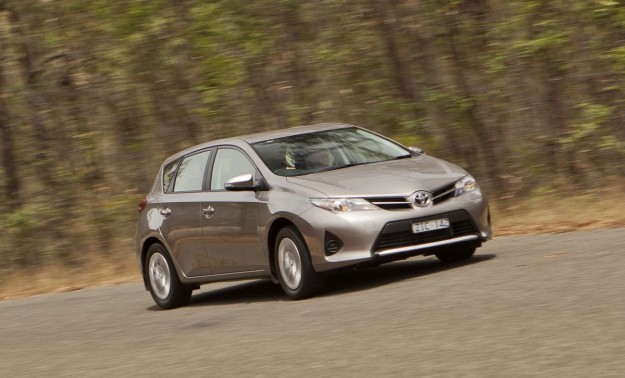
Around town, though, there’s too much engine noise as the transmission tries to maintain sufficiently high revs to keep it in the optimum torque band.
Despite these minor downsides, the Toyota auto joins the Nissan Pulsar’s CVT in being on of the more effective examples of the type.
It’s also economical, using just 6.9 litres per 100km around the city over several days and up to 10.5L/100km during a more spirited test drive over several hundred kilometres.
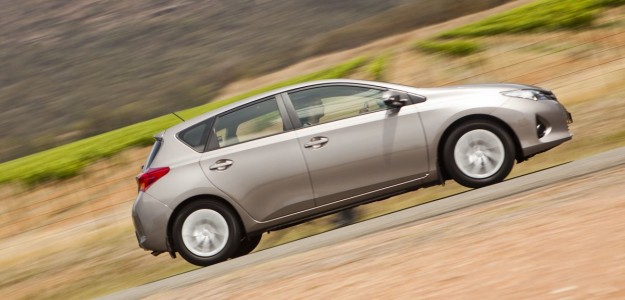
And it’s here where the Corolla proves it has taken a step forward dynamically. While a Mazda 3 and Ford Focus still lead the way comfortably when it comes to driving fun, the Corolla feels composed and tidy when pushing on through corners, with good grip despite our base model Ascent riding on 16-inch tyres (wrapping steel wheels).
The small Toyota sits relatively flat through bends, resisting body roll far better than its predecessor that pitched and rolled in similar situations.
The Corolla’s electric power steering has a ratio that’s just about quick enough to properly exploit the improved handling, though in general driving the steering is frustratingly vague.
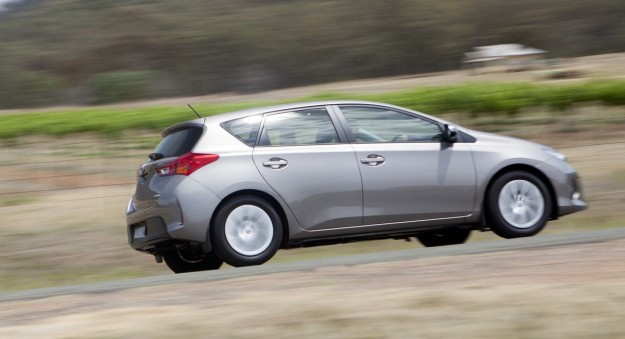
A reworked front suspension brings newly developed front upper supports and bound stoppers, with revised springs and dampers for more compliance, and ride comfort remains a strong point for the Corolla.
The torsion beam rear suspension, though, can still be caught out by bigger bumps that would be dealt with more effectively by some key rivals – such as Focus as VW Golf – that employ multi-link rear set-ups.
Toyota also bumped up the Corolla’s safety package, with seven airbags (including driver’s knee) and a full suite of active and passive safety gear including anti-locking brakes with electronic brakeforce distribution and brake assist and stability control with traction control that’s now typical for the segment.
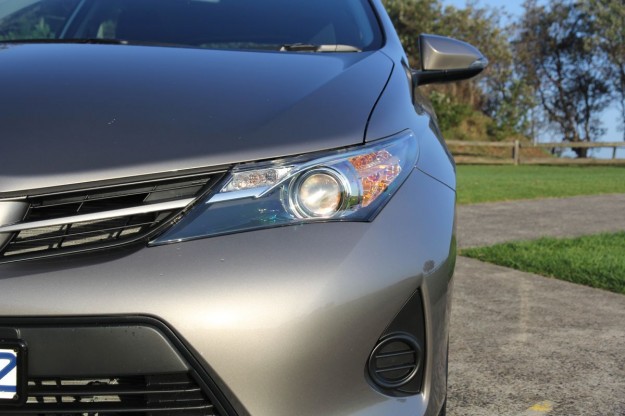
CVT models gain Hill Start Assist as standard equipment and the entire Corolla range gets a five-star ANCAP crash safety rating.
Toyota offers capped price servicing on the Corolla at $130 per service for the first six scheduled services, with service at intervals at every 10,000km.
That all helps to make the Toyota Corolla Ascent a strong value-for-money small car package in what is a highly competitive segment.
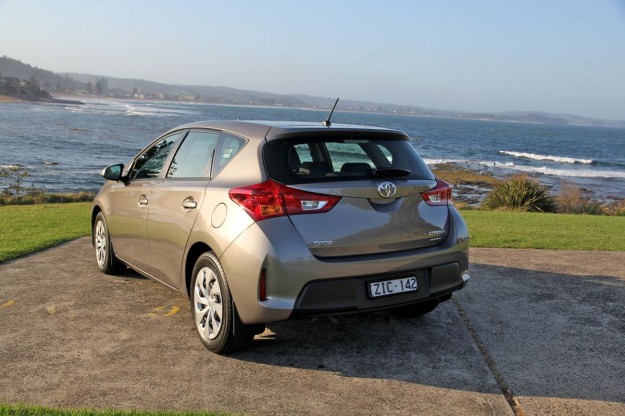
That’s not so much of a change. What is welcome, is the casting off its familiarly humble guise. The Corolla has instead adopted a truly youthful spirit, with Generation 11 also about edgy gadgetry, performance and, of course, style.





